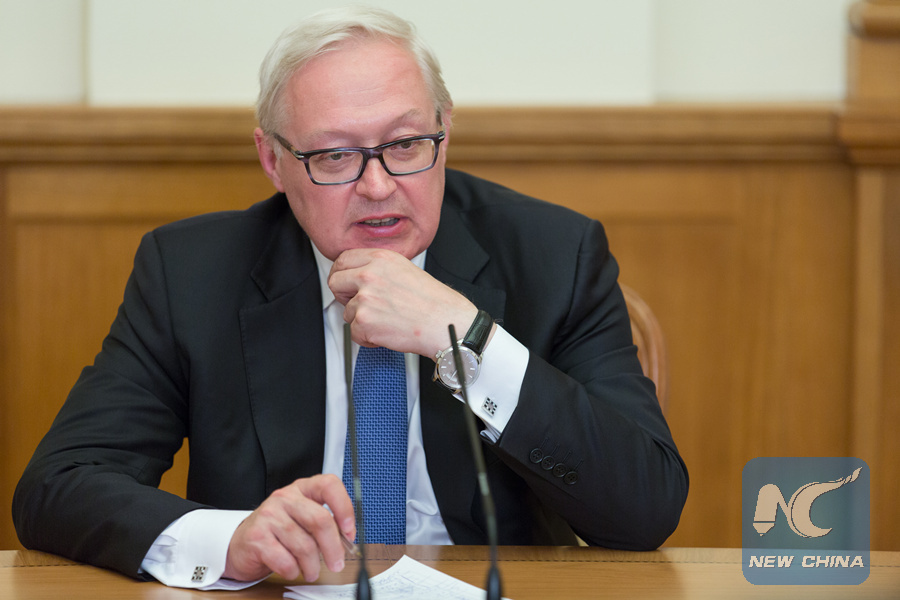
Russian Deputy Foreign Minister Sergei Ryabkov speaks during an interview with Xinhua in Moscow, Russia, on August 22, 2017. (Xinhua/Bai Xueqi)
MOSCOW, Aug. 23 (Xinhua) -- The BRICS mechanism under China's chairmanship this year has entered the second golden decade following 10 years of prosperity, Russian Deputy Foreign Minister Sergei Ryabkov has said.
"We do not see a deceleration in BRICS development nor a fading interest of any partner in this format. We note with great satisfaction that BRICS continues to consolidate and be approved in the international arena and it has become an indispensable factor in influencing international affairs," he told Xinhua Tuesday in an interview.
Meanwhile, BRICS retains its character of an informal association, where there is very little bureaucracy but much dialogue and search for compromises, according to Ryabkov.
Leaders of the five BRICS countries -- Brazil, Russia, India, China and South Africa -- will meet in China's southeastern coastal city of Xiamen early next month for their ninth annual summit.
Since the first foreign ministers' meeting in 2006, BRICS countries have seen 10 years of rapid expansion in trade and economy. They currently account for nearly a quarter of the world economy and contributed more than half of global economic growth in 2016.
The upcoming Xiamen summit will serve as an opportunity for BRICS leaders to meet and map out for the future.
"Nothing in BRICS is compulsory. Everything comes from a common and conscious interest," Ryabkov said.
He said BRICS has a unique composition of participants and a special guideline, and its tasks are formulated to collectively represent political and economic wills of different countries.
The Russian participation in the BRICS cooperation helped the country with its internal tasks ranging from infrastructure development to border security, Ryabkov said.
Moscow, in turn, wants to help consolidate and enrich interaction with its partners, he said.
In March, Chinese Foreign Minister Wang Yi said China would explore expansion modalities for "BRICS Plus" and build a wider partnership by holding dialogues with other major developing countries and organizations, so as to turn BRICS into the most-influential platform for South-South cooperation in the world.
Non-BRICS countries have been invited to attend the Xiamen meetings. Ryabkov expected the upcoming summit to adopt a package of documents outlining the expansion of BRICS and South-South cooperation.
"Now we see a new dialogue format with literally global coverage. This fully fits into the role China plays in BRICS and international affairs as a whole," he said.
According to him, participants in "BRICS Plus" meetings will possibly discuss global governance reform, climate change and trade barriers among other issues.
"I think the Xiamen summit will be productive," he said.

